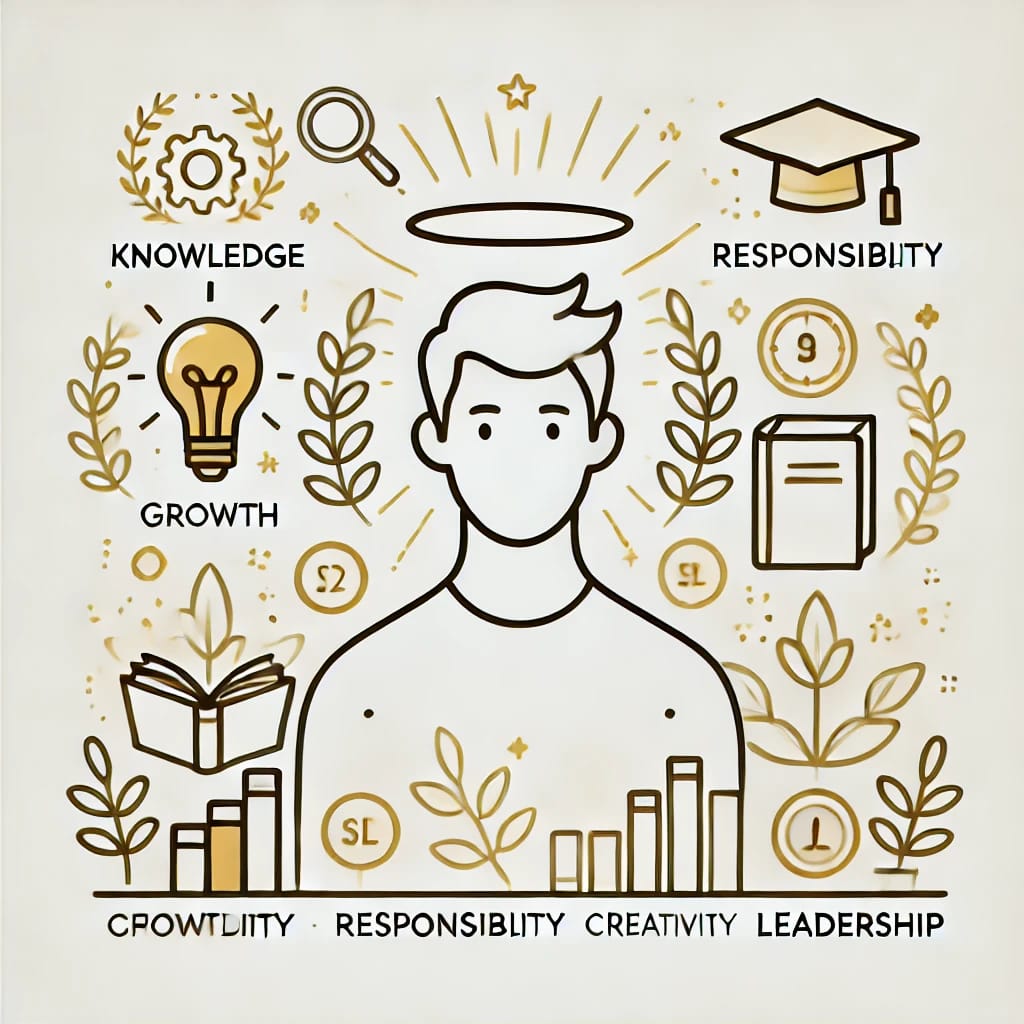Characteristics of Ideal Students Towards a Golden Generation

By Dr. Abdul Wadud Nafis, LC., MEI
In facing the era of globalization and the rapid advancement of technology, the world requires a generation that is more than just academic graduates. Students are expected to be pioneers of change, individuals who possess not only knowledge but also strong character, social commitment, and high competitiveness.
An “ideal student” embodies individuals who can meet contemporary challenges while preparing for the future. They are true learners, creative thinkers, and socially and environmentally conscious. They understand that achievement is not merely about numbers or awards, but about how their knowledge and talents can bring about real change.
As future leaders, they are expected to be independent, honest, possess integrity, and never stop learning. With this spirit, ideal students not only build their own futures but also contribute to the nation’s journey towards better progress.
Discussing the concept of ideal students more broadly involves various aspects that encompass academic performance, social skills, critical thinking abilities, and their roles in society. Here is a deeper review:
1. Integrity and Strong Character
Ideal students are expected to possess strong integrity, meaning they are honest and act in accordance with moral and ethical principles. This strong character helps them fulfill their roles as trustworthy future leaders. They not only meet academic obligations but also demonstrate a high commitment to the values of truth, honesty, and justice. Students with integrity serve as role models for their peers and are exemplars in the campus environment.
2. Critical and Creative Thinking
In an increasingly complex world, critical and creative thinking skills are crucial. Ideal students do not simply accept information; they are also capable of analyzing, evaluating, and interpreting that information in depth. They think openly and creatively to solve problems, encouraging them to view various possible solutions from different perspectives. This creative thinking is essential not only for academic problem-solving but also for real-world challenges beyond the campus.
3. Independence and Responsibility
Ideal students can manage themselves well and do not depend on others to achieve their goals. This ability includes time management, self-discipline, and awareness of personal responsibility for their education and future. Responsibility-based independence enables students to face academic challenges and social responsibilities in their surroundings. In the academic context, independent students actively seek knowledge and possess a great curiosity, showing initiative.
4. Communicative and Collaborative
Effective communication is an integral part of ideal students. They can express ideas clearly, both verbally and in writing, and listen to others’ viewpoints. Collaboration with others is also crucial, especially in an era of globalization that requires interdisciplinary and cultural cooperation. Ideal students appreciate different perspectives, work in teams, and build positive relationships that benefit collective progress. This is also important for creating social networks that are useful for their personal and professional development.
5. Global Awareness and Appreciation of Local Wisdom
Ideal students understand global issues such as climate change, technology, digital economy, and international socio-culture, providing them with a broad perspective on the world. On the other hand, they also value the traditions, cultures, and wisdom of their local communities. This understanding is essential for students to maintain their identity as individuals who appreciate their nation’s culture and history while remaining open to global changes. Thus, ideal students can bridge local values and global challenges.
6. Active in Organizations and Contributing to Society
Organizational activities provide numerous skills for ideal students, such as leadership, conflict management, decision-making, and strategic planning. Ideal students are often involved in student activities, gaining experience in leading, collaborating, and executing positive programs. Furthermore, they actively contribute to society through social service programs, community empowerment, or environmental activities. This social engagement builds awareness of their roles as agents of change within the community.
7. Developing a Lifelong Learning Attitude
The attitude of continuous learning, or “lifelong learning,” is a crucial characteristic in a constantly changing world. Ideal students have a strong curiosity that drives them to learn beyond what is offered in the classroom. They diligently read, take additional courses, or learn new skills beneficial for their career and life. This also includes the ability to adapt to changes and the willingness to learn from mistakes, reflecting on their experiences throughout their lives.
8. Visionary Thinking and Clear Aspirations
Ideal students focus not only on current events but also have a forward-looking perspective with clear aspirations and goals they wish to achieve. They formulate plans to reach these goals with concrete steps and are willing to undergo a lengthy process to achieve them. This visionary thinking motivates them in every activity, both academic and non-academic.
9. Maintaining Balance in Life
Ideal students recognize the importance of balancing studies, personal time, social life, and health. They can manage stress and academic pressure in healthy ways and know when to take breaks. This balance helps them remain productive and maintain their mental and emotional health. Ideal students understand the importance of maintaining a healthy lifestyle and managing their time well to sustain a balanced life.
Conclusion
Ideal students are individuals who can maximize their potential and possess the various skills and character traits necessary to face future challenges. They excel academically while upholding values of integrity, social responsibility, interpersonal skills, and a commitment to lifelong learning. Such students will be the next generation ready to contribute to nation-building and address global challenges. They represent hope for society in creating a better, fairer, and more harmonious world.
In conclusion, ideal students are those who not only excel academically but also possess strong character, critical thinking, independence, and social concern. They can adapt to the challenges of the times, contribute to their social environment, and engage in lifelong learning. In their role as agents of change, ideal students are expected to be a solid pillar for the nation’s progress and civilization. By fostering a generation of ideal students, we collectively build a better and more competitive future.
References
1. Astuti, D. (2020). The Character of Ideal Students in the Era of Globalization. Journal of Education and Culture, 5(2), 45-58.
2. Dewi, R. S. (2019). Student Character Education: The Importance of Integrity and Ethics. Jakarta: Erlangga Publishing.
3. Mardiana, R. (2021). The Role of Students in Society: From Theory to Practice. Journal of Social Sciences and Humanities, 4(1), 75-88.
4. Mustari, A. (2018). Students as Agents of Change: Challenges and Opportunities. Malang: UMM Press.
5. Nurhadi, H. (2022). Critical and Creative Thinking Skills in Higher Education. Journal of Education and Innovation, 6(3), 99-112.
6. Prasetyo, D. (2023). Developing Independence and Responsibility in Students. Yogyakarta: Andi Offset.
7. Rahman, M. A., & Sari, R. (2020). Building Student Quality Through Campus Organizations. Journal of Educational Management, 7(1), 25-38.
8. Setiawan, A. (2022). Life Balance and Education for Students. Journal of Mental Health, 8(4), 150-160.
9. Taufiq, A. (2021). Lifelong Learning-Based Learning Strategies in Higher Education. Journal of Education and Learning, 9(2), 130-142.
10. Ulya, N. (2019). Students and Local Wisdom: Integrating Cultural Values into Education. Journal of Culture and Society, 10(2), 65-78.

